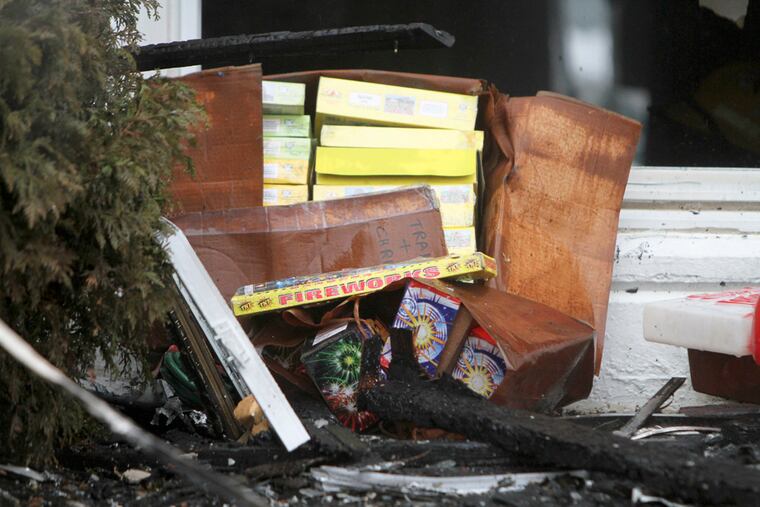Lose the fireworks, Philly | Editorial
Residents of neighborhoods across Philadelphia are weary of firecrackers detonating at all hours. In a city struggling with police violence and racial justice, this might seem a minor matter. But if ever there was a time to turn the volume down a bit in Philly, it's now.

As Philadelphia struggles with issues of police violence, racial justice, and a deadly pandemic, complaints that firecrackers have been detonated all over the place and at all hours for weeks now may seem a minor matter. But the noise of what can sound like gunfire or explosions is further rattling already frayed nerves in many Philly neighborhoods; city police reported 947 calls about fireworks or other explosions between May 29 and June 21. The fact that residents of Boston, Baltimore, and other cities nationwide are up in arms for similar reasons offers scant comfort to sleepless Philadelphians — including children on the autism spectrum, military veterans with PTSD, senior citizens, and sick people. Plenty of dogs aren’t very happy about it, either.
Organizers of a grassroots task force to have the sale and use of “consumer-grade” fireworks made illegal once again in Philadelphia should direct their complaints to Harrisburg. By following many other states in abolishing bans on consumer fireworks and approving sales and use statewide in 2017, the legislature effectively usurped the city’s regulatory power. Once again, a lack of concern among some of Pennsylvania’s elected officials for the state’s largest city comes back to haunt and hurt the people who live here.
The new regulations on where fireworks can and can’t be used might make sense for rural parts of the state, but are unworkable in a densely populated city where rowhouses and narrow streets rule. Despite the amendments the Kenney administration made to Philly’s fire code in order to conform with the new state law, the rationale for the city’s long-standing ban on consumer fireworks was and still is sound.
But with fireworks for sale in discount, grocery, and convenience stores across Philly and the suburbs, it’s no surprise that more people are buying, and using, them. Whatever the fans might like to believe, however, not every sort of “recreational” small-scale explosive device is allowed; M-80s, for example, are as dangerous as ever and remain illegal. Last year, two city children under age 12 were severely injured by illegal explosives.
The nationwide burst of popularity for legal consumer fireworks started around Memorial Day and took even officials of the trade group the American Pyrotechnics Association by surprise. The coronavirus pandemic seems to be a factor; virtually all official, professionally run Fourth of July fireworks shows in the Philly region and beyond have been canceled due to concerns about viral transmission in crowds. But even if people are frustrated, bored, and want to create their own entertainment, they ought to recognize that doing so in urban, as well as suburban, neighborhoods is not only inconsiderate but dangerous.
The notion that fireworks are a harmless tradition being criminalized by liberal killjoys, that restrictions are part of a sinister government conspiracy, and that complaints are petty and frivolous may circulate widely on social media.
But in the real world, even in Philadelphia, even the most bored people generally limit their enjoyment of fireworks to the Fourth, or New Year’s Eve. The rapid growth of the Stop Philly Fireworks group suggests its voice may soon be loud enough for even Harrisburg to hear. Maybe even heed.